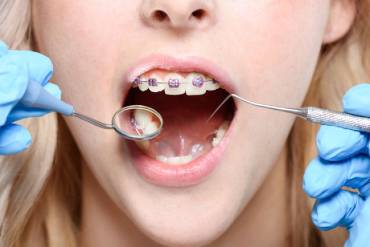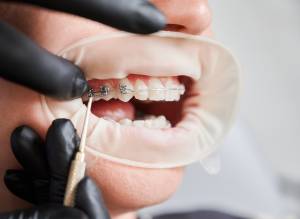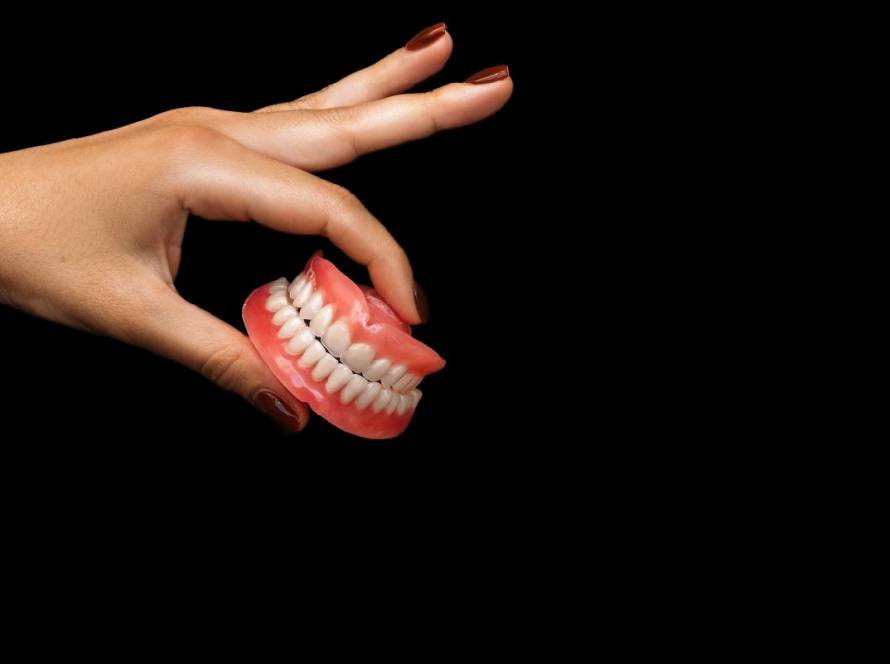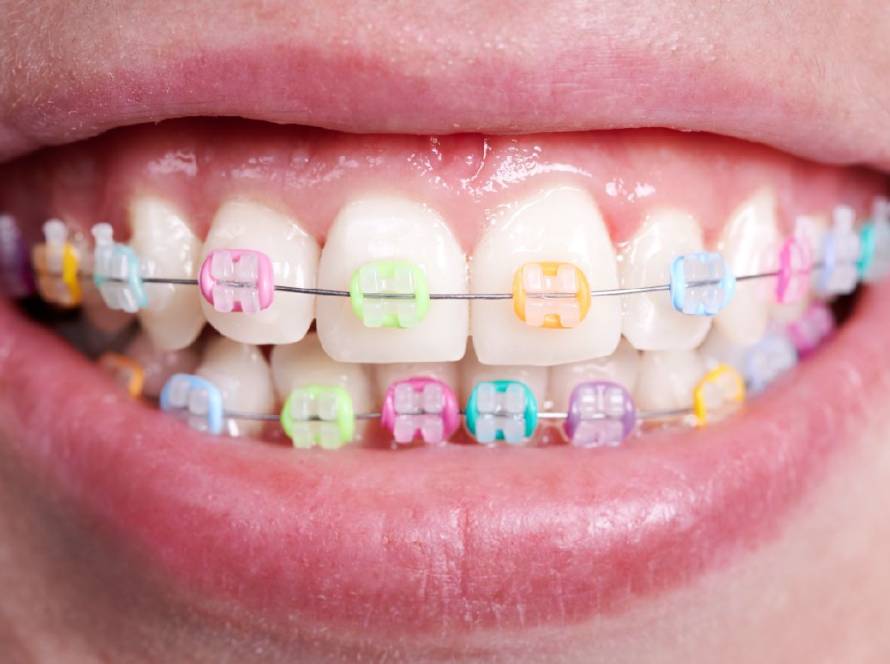Buck teeth, or what dentists call an “overjet”, are one of the most common alignment issues people face.
Whether it’s a child developing a noticeable gap between their top and bottom teeth, or an adult who never got the chance to fix it earlier in life, the question often comes up: Can braces fix buck teeth?
The short answer is yes. In most cases, braces are one of the best ways to reposition teeth and correct bite alignment for a healthier, more natural-looking smile.
In this article, we’ll explain what causes buck teeth, why they matter, and how braces (or other orthodontic treatments) can help, especially when started early.
Key Takeaways
- Braces are a highly effective treatment for buck teeth (also called overjet).
- Buck teeth can be caused by genetics, thumb sucking, or jaw misalignment.
- Left untreated, they can lead to speech issues, difficulty chewing, or damage to front teeth.
- Nassau Bay Dental offers braces and early orthodontic screenings for kids, teens, and adults.
- Treatment options include metal braces, clear braces, and Invisalign, depending on the case.
What Are Buck Teeth?
Buck teeth refer to a condition where the upper front teeth stick out further than normal, creating a visible gap or protrusion beyond the lower teeth. Dentists call this an overjet.
This is different from an overbite, which deals with how far the top teeth overlap the bottom teeth vertically. An overjet is a horizontal issue.
Common signs include:
- Front teeth visibly jutting outward
- Trouble closing the lips naturally
- Difficulty biting into foods
- Lisping or speech issues
What Causes Buck Teeth?
There are a few common reasons buck teeth develop:
1. Genetics
Some people are simply born with a jaw or dental structure that leads to overjet.
2. Thumb Sucking or Pacifier Use
Long-term habits during childhood can push the front teeth forward.
3. Tongue Thrusting
A swallowing habit that causes the tongue to press against the teeth, affecting alignment.
4. Jaw Misalignment
When the upper and lower jaws don’t grow evenly, it can cause the top teeth to project outward.
Why Fixing Buck Teeth Matters
Buck teeth are more than a cosmetic issue. If left untreated, they can lead to:
- Tooth wear or chipping
- Jaw pain or TMJ problems
- Trouble chewing or biting into foods
- Self-consciousness about appearance
- Higher risk of dental trauma (especially in kids)
Correcting an overjet improves function, comfort, and confidence, and often prevents more serious issues later on.
How Braces Fix Buck Teeth
Braces work by applying gentle, steady pressure to move teeth and guide them into better alignment.
For patients with buck teeth, the process often involves:
- Retracting the front teeth inward
- Aligning the lower and upper jaw for a proper bite
- Closing any gaps between teeth
- Using elastics (rubber bands) or springs for added directional movement
Treatment may also involve additional appliances for younger patients, such as palatal expanders or space maintainers, if the jaw structure needs correction.
How Long Does It Take to Fix Buck Teeth With Braces?
Treatment time depends on the severity of the case and the patient’s age. General guidelines:
- Mild overjet: 12 to 18 months
- Moderate to severe: 18 to 30 months
- Early intervention (kids): May shorten total treatment time with phased orthodontics
Most patients start seeing improvements within a few months.
Can Invisalign Fix Buck Teeth Too?
Yes, Invisalign can fix mild to moderate overjet in many cases. It works similarly to braces by using clear aligners to apply gradual pressure.
However, for more severe buck teeth or jaw-related issues, traditional braces may be a better fit. A consultation with your dentist or orthodontist will help determine the best approach.
When Is the Best Time to Start?
For kids, the ideal time for an orthodontic evaluation is around age 7. This doesn’t always mean braces right away, but early screening helps detect overjets or jaw issues early on.
Teens and adults can still benefit greatly from braces, even if they’ve waited years to address buck teeth.
At Nassau Bay Dental, we welcome patients of all ages and offer guidance on timing, treatment type, and insurance or payment options.
Why Choose Nassau Bay Dental?
Here’s why families in Nassau Bay and the greater Clear Lake area trust us for orthodontic care:
- Friendly, bilingual team experienced with kids, teens, and adults
- Family-centered approach with Medicaid-friendly care
- Flexible financing and treatment plans tailored to your needs
- Convenient location and compassionate service
- Early orthodontic evaluations and full-service braces care
We’re here to help you or your child get a straighter smile, comfortably and affordably.
Ready to Fix Buck Teeth and Build a Healthier Smile?
Whether it’s your child or yourself, Nassau Bay Dental is here to help correct overjets with personalized orthodontic care.
Call us today to schedule a free consultation
Visit our Nassau Bay office and ask about Medicaid-friendly orthodontic treatment. Flexible payments and family-friendly care you can trust
Conclusion: Braces Can Fix Buck Teeth
Buck teeth might seem like a small issue at first, but they can impact everything from oral health to self-esteem. The good news is that with today’s orthodontic options, including braces and Invisalign, it’s never been easier to correct them.
At Nassau Bay Dental, we make the journey comfortable, clear, and affordable for families across Texas. Let’s help you smile with confidence again with our top dentist in Nassau Bay professionals.
FAQs
1: Can braces fix buck teeth in adults?
Yes. Braces can successfully correct buck teeth in adults, though treatment may take a bit longer than in children.
2: Are buck teeth the same as an overbite?
No. Buck teeth (overjet) refer to horizontal protrusion of the top teeth, while an overbite is vertical overlap.
3: Is Invisalign good for buck teeth?
Invisalign can work for mild to moderate overjet, but braces are often better for severe cases.
4: How long do you have to wear braces for buck teeth?
Anywhere from 12 to 30 months, depending on how severe the misalignment is.
5: What causes buck teeth in children?
Common causes include thumb sucking, pacifier use, genetics, or improper tongue position when swallowing.








